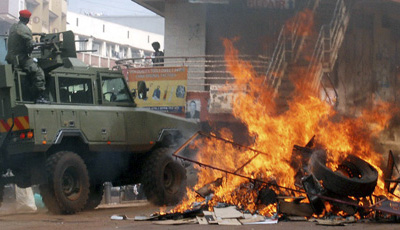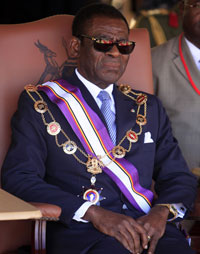
Equatorial Guinea bars reporter from press freedom debate
To commemorate World Press Freedom Day on May 3, CPJ published a list of the 10 most censored countries, citing Equatorial Guinea as the fifth worst offender. In response, the Minister of Information and government spokesperson, Jerónimo Osa Osa Ecoro, dismissed the analysis of the country’s press situation as biased.”We are going to communicate with…
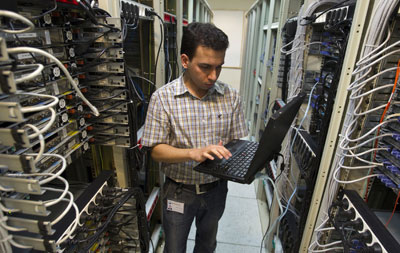
Most censored nations each distort the Net in own way
One big reason for the Internet’s success is its role as a universal standard, interoperable across the world. The data packets that leave your computer in Botswana are the same as those which arrive in Barbados. The same is increasingly true of modern mobile networks. Standards are converging: You can use your phone, access an…
Video: 10 Most Censored Countries
CPJ Deputy Director Robert Mahoney counts down the 10 countries where the press is most tightly restricted. How do leaders in these nations silence the media? And which country is the worst of all? (4:03) Read CPJ’s report on the 10 Most Censored countries for more detail on how censorship works, and which countries were…
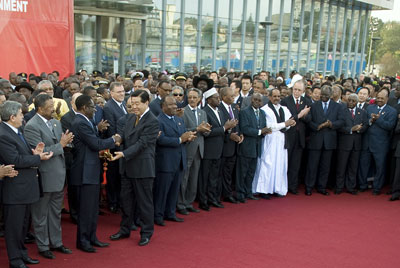
China not most censored, but may be most ambitious
China didn’t make the cut for our 10 most censored countries. While the Chinese Communist Party’s censorship apparatus is notorious, journalists and Internet users work hard to overcome the restrictions. Nations like Eritrea and North Korea lack that dynamism.
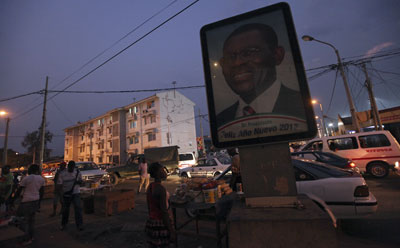
Equatorial Guinea’s press silent on unrest in Mali, Syria
While Mali remains in global headlines with a March 22 military coup and rebel claims of an independent state, citizens in Equatorial Guinea are kept in the dark about the crisis unless they have access to international media, CPJ has gathered from interviews with journalists and a government spokesman.
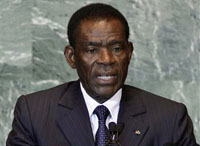
Renamed Obiang prize is a blow to UNESCO
New York, March 8, 2012–A vote by a commission of UNESCO’s executive board to rename the discredited Obiang prize is a blow to the credibility of the organization, the Committee to Protect Journalists said today. Meeting in Paris, the commission voted to change the name of the prize to “International UNESCO-Equatorial Guinea Prize” and for…
Attacks on the Press in 2011: Equatorial Guinea
News and information was tightly controlled in Equatorial Guinea, which CPJ identified as one of the world’s most censored nations. Nearly all news media were owned and run by the government or its allies. One independently owned newspaper circulated in the country, but had to practice self-censorship; no independent broadcasters operated domestically. Even in this…
Obiang prize shelved… for now… again
UNESCO’s executive board Tuesday again deferred action on the life sciences prize named after and funded by President Teodoro Obiang Nguema Mbasogo of Equatorial Guinea. The Committee to Protect Journalists joined with other human rights organizations to call on the board to eliminate the prize permanently.
